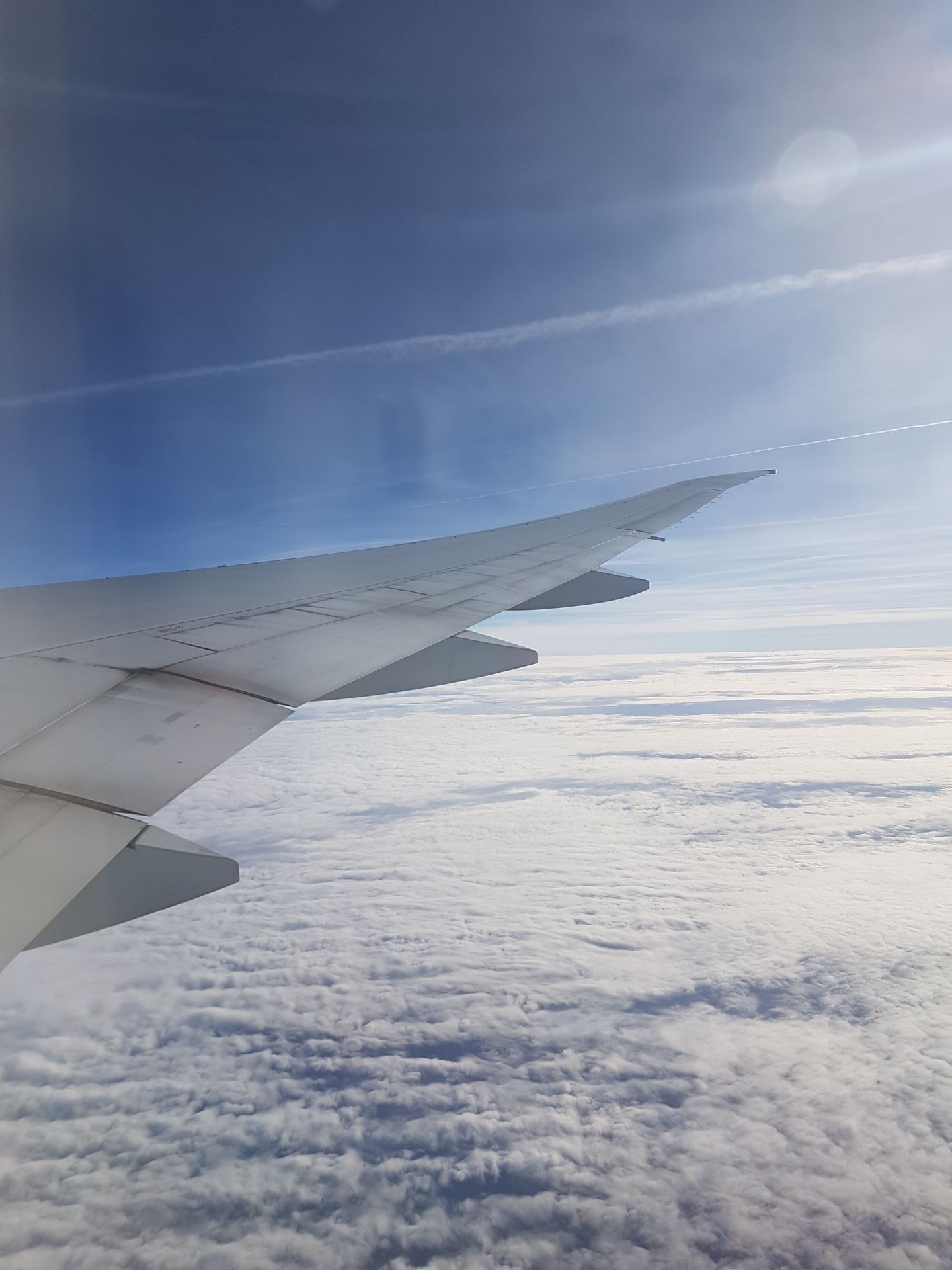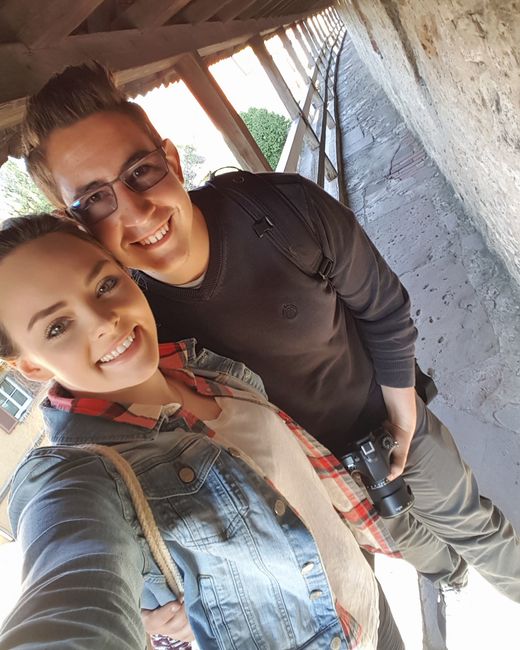24/05/2018 - Two Nights at French Pass
ప్రచురించబడింది: 25.06.2018
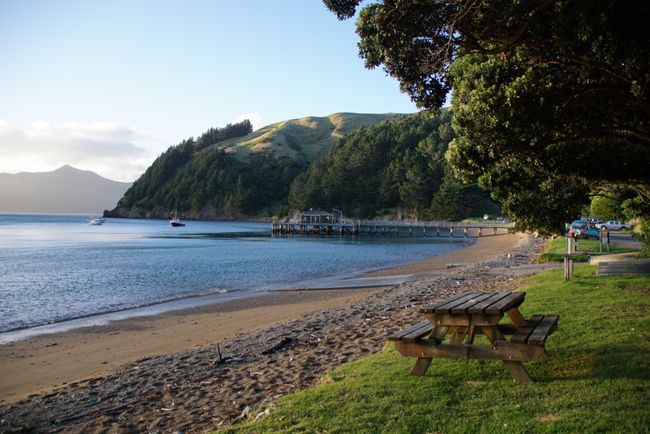
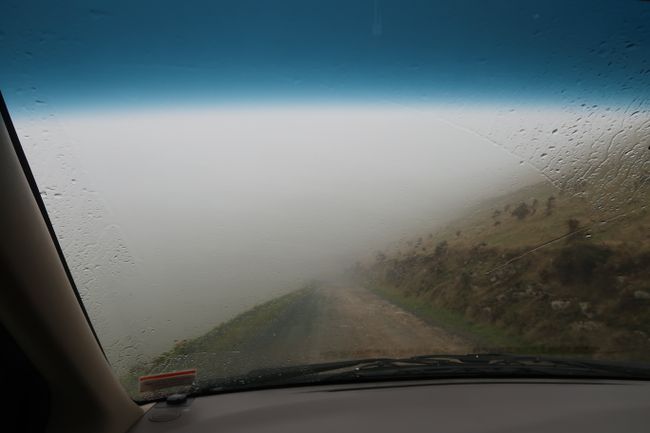
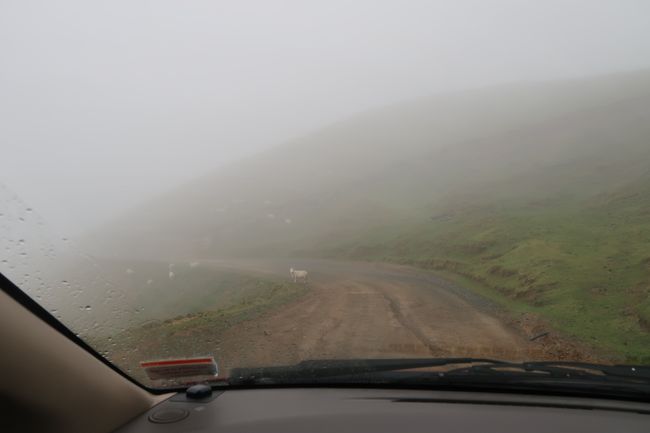
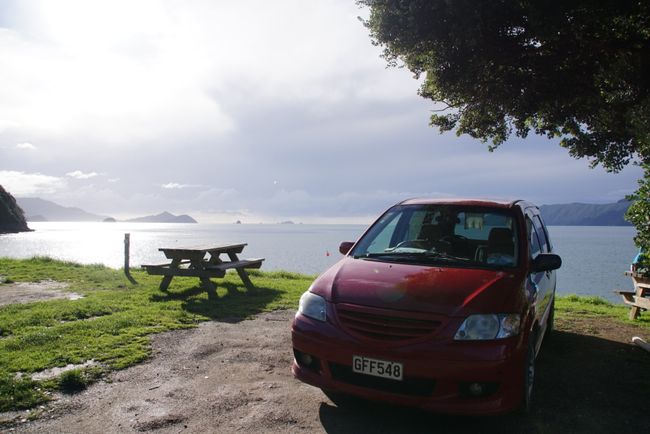
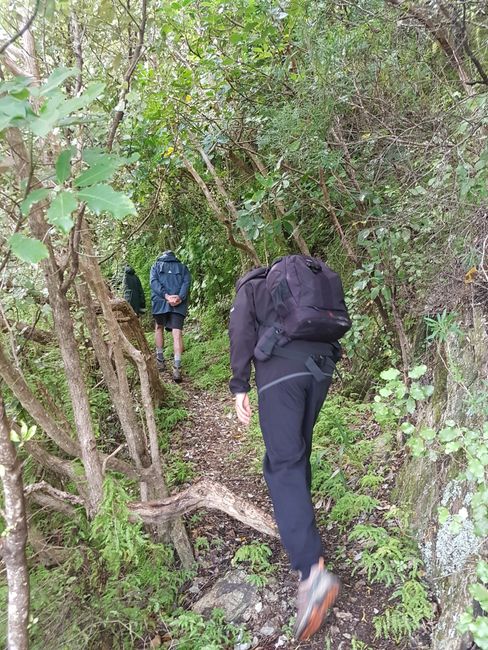
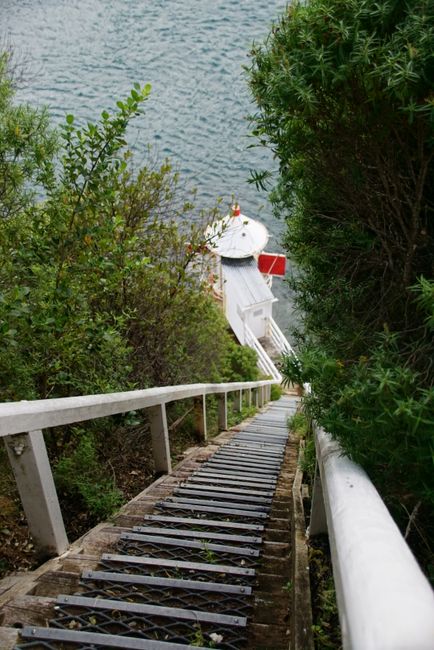
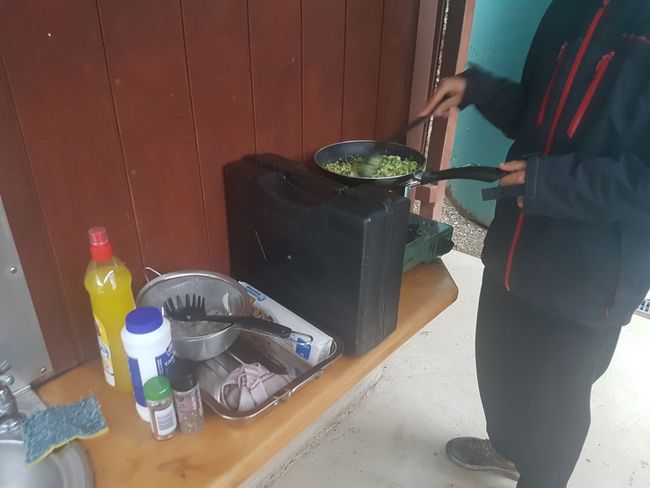
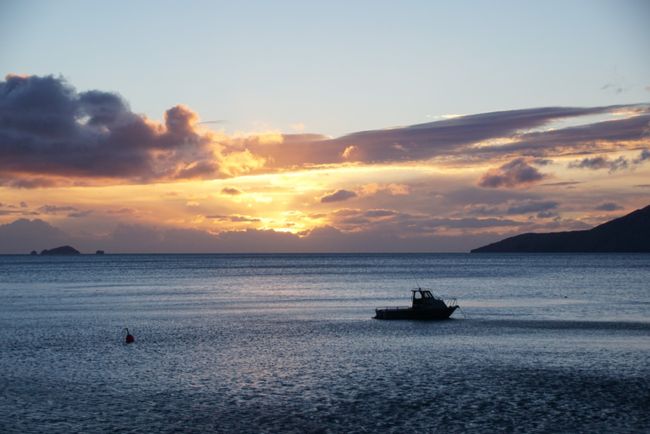
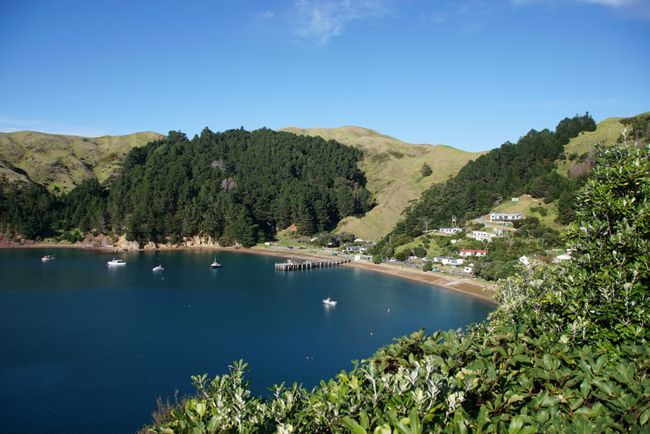
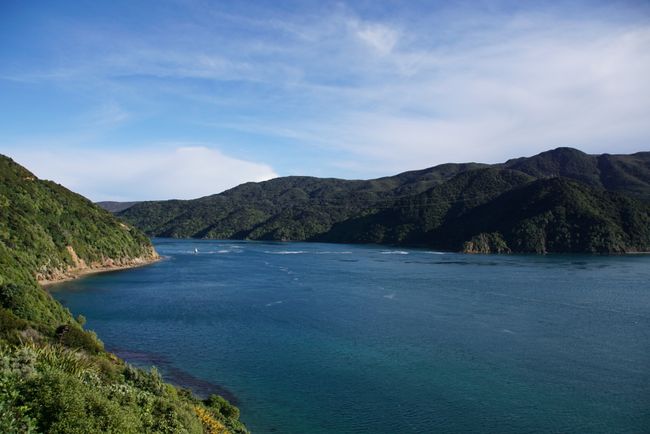
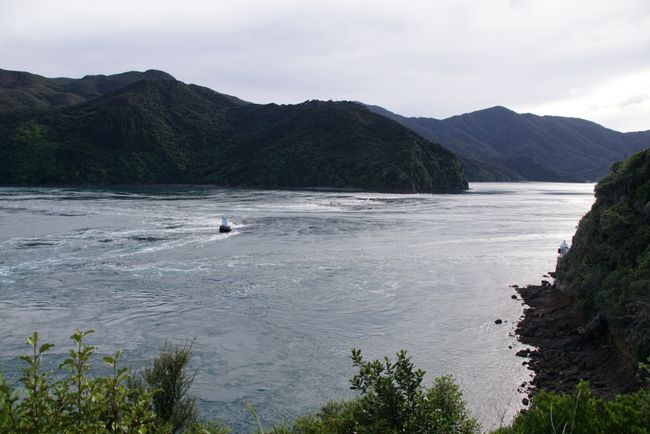
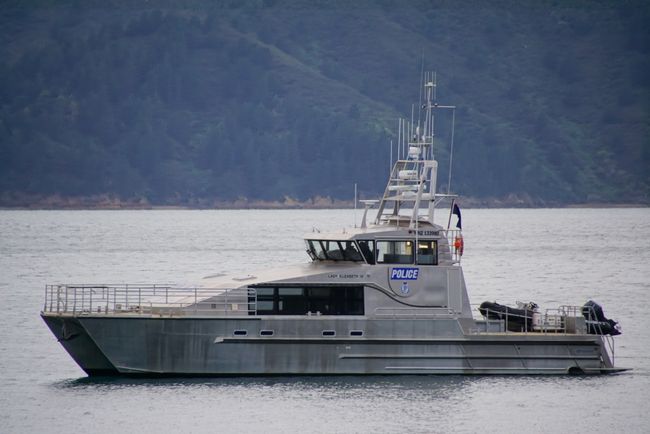
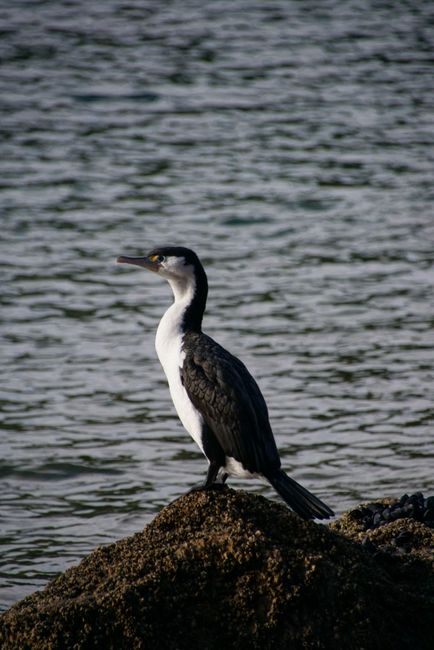
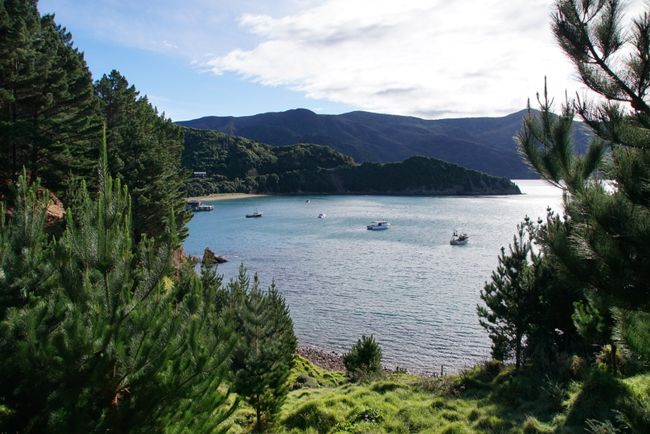
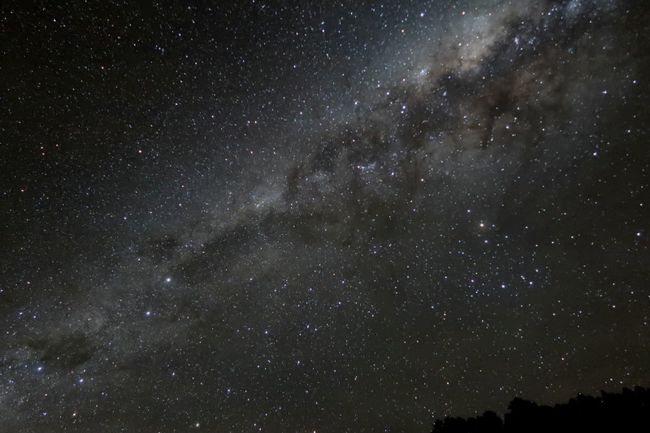
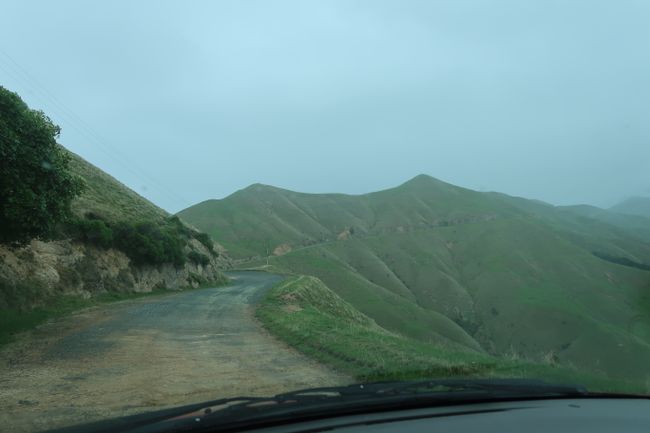
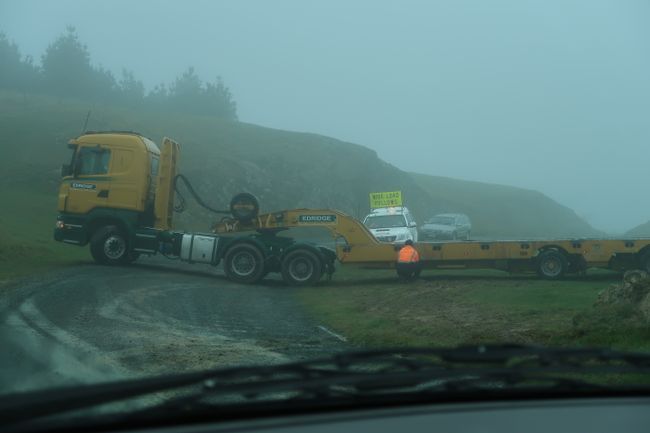
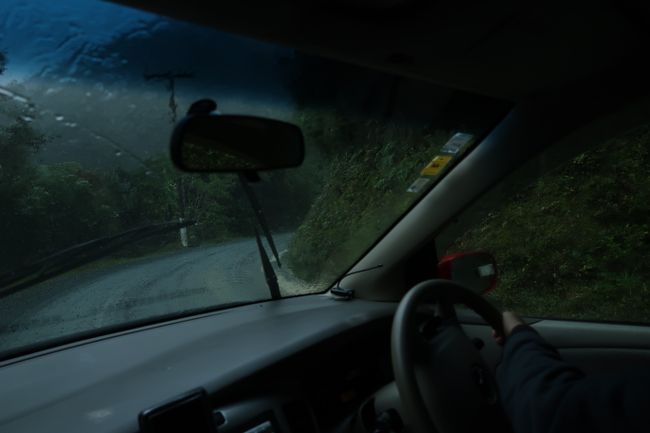
వార్తాలేఖకు సభ్యత్వాన్ని పొందండి
After a rather uncomfortable night, we woke up tired in Elaine Bay. The strong gusts of wind that shook our car during the night did not let up by early morning. The wind was so strong that even opening the door was a challenge. Therefore, breakfast outdoors was out of the question. Once everything was packed and cleaned up, and no pillows or backpacks were blown away, there was nothing stopping us from continuing on to French Pass. The road to French Pass alternated between paved road and gravel road, with the latter being the majority. We rolled along the edge for nearly 20 kilometers at a speed of 30 km/h. This stretch of road is known for its beautiful views, which unfortunately we did not get to see. When we took the mountain road, visibility was very limited. Clouds completely surrounded us. Luckily, we spotted the residents of this remote region in time! Sheep crossed the road repeatedly.
45 minutes later, we arrived at French Pass. The small village of 15 houses is located right by the sea and has a DOC camping site. We parked the car around 11:00 and paid for the next two nights.
Most camping sites of this kind do not have a traditional reception. In a container, there are envelopes containing a piece of paper. On this paper, you fill in your personal information, add the corresponding fee, and drop it into a kind of mailbox. Usually, it is checked by the responsible ranger every day.
We got a first overview - there was another camper on site and several boats were anchored in the bay. Tobi was busy taking photos and I was writing on the blog when someone suddenly knocked on the window. An elderly couple spontaneously invited us for a walk. We hiked up the nearby hill. They showed us a large stingray in the shallow water and led us to a private property. It turned out that the two of them temporarily take care of the camping site and represent the ranger. They also look after the house of the former lighthouse keeper for two months, where we walked to. There was a very steep staircase leading down to the small lighthouse, which used to be put into operation every evening - it is now completely automated and only requires regular maintenance.
The couple continued walking at a brisk pace! They showed us an old pier. From there, we had a particularly good view of French Pass.
The pass or strait was undoubtedly crossed by a Frenchman for the first time, which is why it is named that way. It is one of the most challenging waterways in the world. Due to strong underwater currents, rocks, and a very narrow channel, it is still notorious among sailors.
On the way back to the camping site, we talked about our journey so far and agreed on the beauty of the region. The deputy ranger told us about his serious illness that he had recently recovered from. Although his emergency operation was not long ago, he was walking ahead in shorts - with an outside temperature of 5°C. After giving us various tips for excursions, everyone returned to their campers.
In the evening, we sought shelter under a canopy to cook dinner. After eating in the car and washing the dishes with cold water, we disappeared into the car. Soon, it seemed like the world wanted to end right above us. We experienced our first, more powerful thunderstorm in New Zealand. The wind was so strong that sand from the beach was swirling and hitting our windows... In such weather conditions, there are much better places to park than those right by the sea...
Therefore, the next day started with still exhausted Hightown kiwis.
To our dismay, our drinking water supply was empty after breakfast. Therefore, we had no choice but to boil the storage water from the camping site. It took a whopping 45 minutes to bring 2.5 liters of water to a boil. Either the camping stove was not ready for the day yet or the wind made it harder.
When the dishes were done, we used a break in the rain for some smaller hikes in the area. First, we headed to "Collinet Point Lookout." From here, we had a beautiful view of the bay and "D'Urville Island," which has no connection to the South Island and can only be reached by water.
We also visited a secluded beach and the "French Pass Lookout." On site, we saw the phenomena that the ranger pointed out to us yesterday. Both sides of the strait experience extreme tides. When the tide is coming in or going out, the waters are squeezed through the narrow channel of the French Pass. This creates strong undercurrents. The buoys were swaying back and forth due to the waves. By means of markers, you could see the narrow channel that the ships have to navigate to pass through the pass.
Back at the camping site, we enjoyed the last piece of Tobi's birthday cake in the sunshine. In the afternoon, we were drawn back into nature once again. We walked along the beach and reached an adjacent forest area. From there, we hoped to get a glimpse of the bay. Unfortunately, our plan was quickly thwarted. We climbed over a fence, but a short time later, the trail became increasingly unclear. So, somewhat disappointed, we turned back and looked for rays in the harbor area. From a wooden jetty, we actually spotted the outlines of one.
At night, we saw a beautiful starry sky through the rear window. Tobi managed to motivate himself and armed himself with a camera and tripod to take photos from the wooden jetty.
After breakfast, we left French Pass. The hope of seeing more on the mountain pass this time quickly dissipated a few minutes after departure. A large rain front was waiting behind the mountain. We unexpectedly came across a heavy transport vehicle after passing herds of sheep. It had just unloaded an excavator and was now blocking the road. Once the congestion had cleared, we continued on the gravel road. As soon as we reached the paved section, the weather drastically improved. The sky turned blue, and sunshine accompanied the rest of our journey. But where to? That was not yet decided. When we had internet connection again and could check the weather forecast, we chose a higher quality camping site. Because ground frost is forecasted for tonight.
In "Blenheim," we enjoyed the luxury of a covered, fully equipped kitchen and hot water. We spoiled ourselves with fresh red cabbage salad that evening before the adventure continues tomorrow.
వార్తాలేఖకు సభ్యత్వాన్ని పొందండి
సమాధానం

న్యూజిలాండ్ ప్రయాణ నివేదికలు
